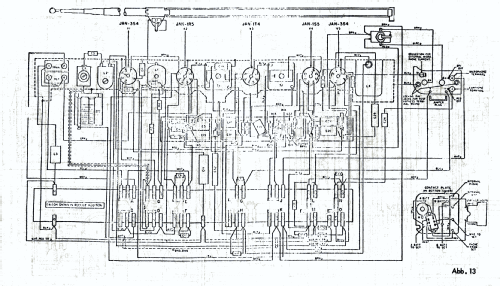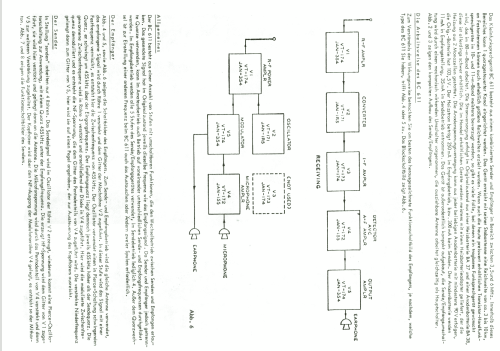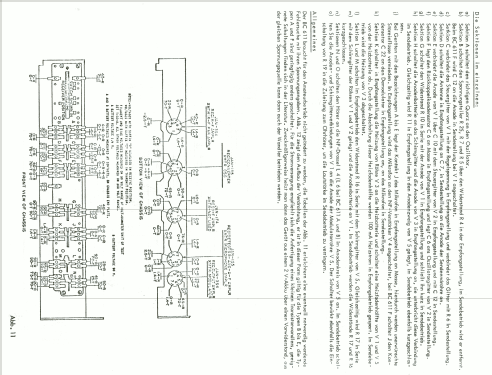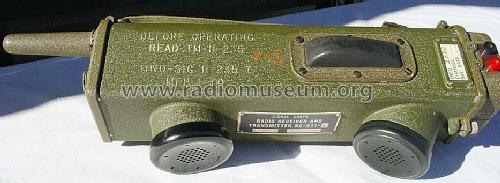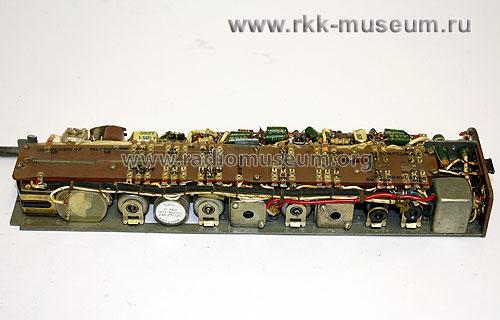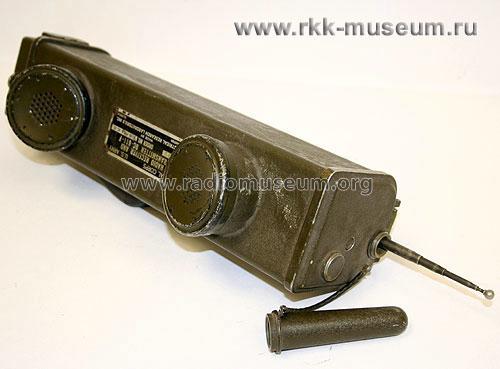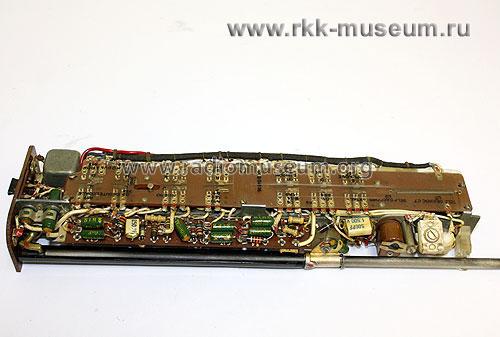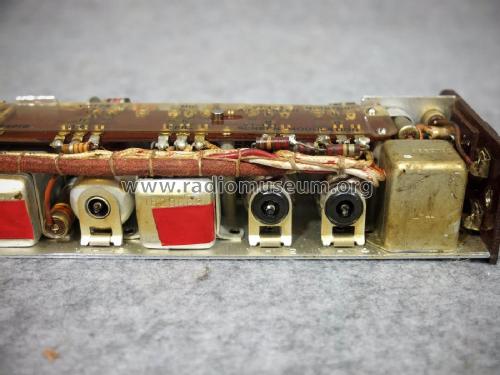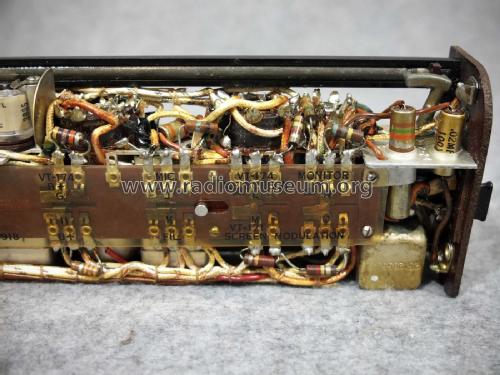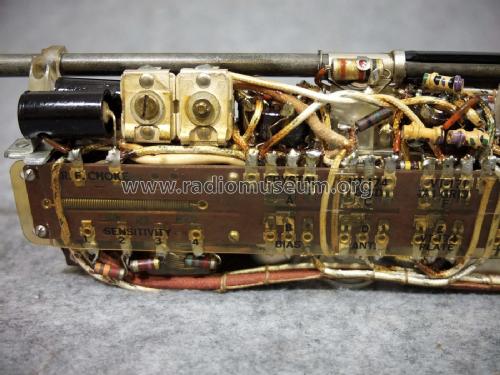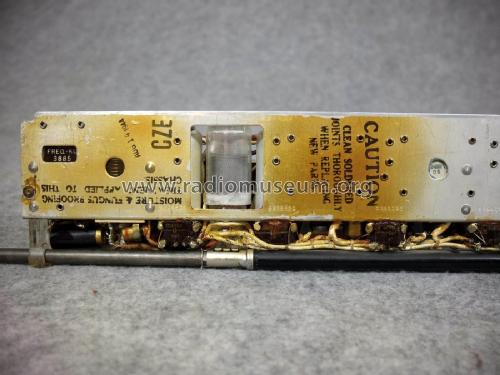SCR-536 Radio Set BC-611 (Variants A, B, C, D, E and F)
MILITARY U.S. (different makers for same model)
- Country
- United States of America (USA)
- Manufacturer / Brand
- MILITARY U.S. (different makers for same model)
- Year
- 1941–1956
- Category
- Military Transceiver (TRX)
- Radiomuseum.org ID
- 71779
Click on the schematic thumbnail to request the schematic as a free document.
- Number of Tubes
- 5
- Main principle
- Transceiver; ZF/IF 455 kHz
- Wave bands
- Wave Bands given in the notes.
- Power type and voltage
- Storage and/or dry batteries / 1.5/103.5 Volt
- Loudspeaker
- Permanent Magnet Dynamic (PDyn) Loudspeaker (moving coil)
- Material
- Metal case
- from Radiomuseum.org
- Model: SCR-536 Radio Set BC-611 - MILITARY U.S. different makers
- Shape
- Miscellaneous shapes - described under notes.
- Dimensions (WHD)
- 80 x 320 x 90 mm / 3.1 x 12.6 x 3.5 inch
- Notes
- The first ever made AM "Handy-Talky", for the US-Service. One channel xtal-operation in the range 3.5 - 5.995 MHz. Variants -A to -F. Another part of SCR-536 is the Box BX-49, containing components for 12 different frequencies or "channels". In chest CH-233 all 50 official channel-components were multiple available in 2 boxes. After channel-changing, realignment with Test Set IE-17 was needed. The official channel 3885 kHz was often used by Amercian hams, but in Europe suitable x-tals for lower frequencies had to be applied. The given weight is inclusive the 0,75 kg. batteries.
See also the Swiss Army variant FOX SE-100, the French variant or the Case CH-312 from Munston.
- Net weight (2.2 lb = 1 kg)
- 2.5 kg / 5 lb 8.1 oz (5.507 lb)
- Literature/Schematics (1)
- -- Original-techn. papers. (TM11-265 dated 1945. TM11-4019 dated 1945.)
- Literature/Schematics (2)
- The Surplus Handbook - Receivers and Transmitters (page 31-32)
- Author
- Model page created by a member from D. See "Data change" for further contributors.
- Other Models
-
Here you find 405 models, 357 with images and 211 with schematics for wireless sets etc. In French: TSF for Télégraphie sans fil.
All listed radios etc. from MILITARY U.S. (different makers for same model)
Collections
The model SCR-536 Radio Set is part of the collections of the following members.
Museums
The model SCR-536 Radio Set can be seen in the following museums.
Forum contributions about this model: MILITARY U.S.: SCR-536 Radio Set BC-611
Threads: 2 | Posts: 3
Die Entwicklung begann 1941 und lag in den Händen der Fa. Motorola. Siehe auch GFGF-Funkgeschichte Nr. 140, Seite 279ff. (Nov./Dez. 2001).
Eilert Menke, 18.Jun.04








